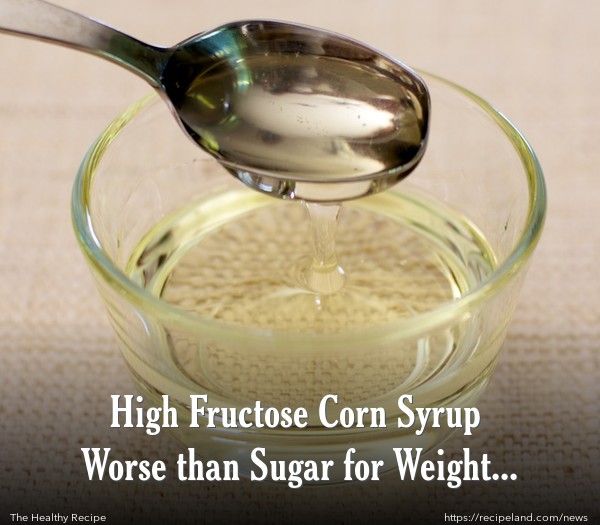Two separate studies conducted by Princeton University have found that consuming high-fructose corn syrup results in metabolic syndrome – characterized by rapid weight gain, higher levels of triglycerides and increased belly fat.
All of these factors contribute to obesity, and this study shows that high-fructose corn syrup may be the main cause for the rise in human obesity in the past several decades.
There are a few key differences between common table sugar and high-fructose corn syrup sweeteners. They are both made up of glucose and fructose, but in different ratios. Regular sugar is also known as sucrose, and the glucose in it can be broken down by the body and stored in muscles and the liver as a carbohydrate.
High-fructose corn syrup contains more fructose than regular sugar. The higher ratio of fructose, combined with the processing method, means that this sweetener does not need to be metabolized in the body the same way that regular sugar does.
One study found that consumption of high-fructose corn syrup leads to weight gain and increased belly fat far more than regular sugar, even when the same numbers of calories are consumed.
In 2005, University of Toronto researchers noted that “for thousands of years, human fructose
consumption was limited to fresh fruits in season. In the past 100 years or so, there’s been a massive increase in our fructose intake, but we haven’t gotten any better at metabolizing it.”(1)
The rats studied in these experiments did not just gain a little extra weight, those given high-fructose corn syrup instead of sucrose showed large amounts of increased abdominal fat.
Researchers link these studies and other experiments to the health problems that arise for people who are obese. Medical complications of obesity include heart disease, diabetes, and fatty liver disease.
With so many health risks repeatedly being proven by studies such as these, why is high-fructose corn syrup used as an added sweetener in so many food products? The answer is quite simple: cost.
“High-fructose corn syrup is as sweet as sucrose, but less expensive, so soft drink manufacturers switched over to using it in the mid-1980s. Now it has surpassed sucrose as the main added sweetener in the American diet.”(1)
Childhood and teen obesity have been linked to drinking large amounts of high-fructose corn syrup in sodas. But soft drinks and candy bars aren’t the only culprits. High-fructose corn syrup is present in most processed foods, even those that are labeled as “low-calorie” and “low-fat.”
These studies make it clear that calories from sweeteners are not the only contributors to weight gain, obesity and related health problems. It is the sweeteners themselves that must be taken into consideration.
Cutting out sodas is the best way to avoid consuming added sugars. Being aware and limiting how much high-fructose corn syrup we eat that are present in other foods is also important.
SOURCES: Miriam E. Bocarsly, Elyse S. Powell, Nicole M. Avena, Bartley G. Hoebel. High-fructose corn syrup causes characteristic of obesity in rats: Increased body weight, body fat and triglyceride levels. Pharmacology Biochemistry and Behavior, 2010; DOI:10.1016/j.pbb.2010.02.012










Comments
The New York Times article referred to in the "American Beverage Association" comment, states the following: "Sugar, and especially the high-fructose corn syrup that sweetens many processed foods and nearly all soft drinks, has been justly demonized for adding nutritionally empty calories to our diet and causing metabolic disruptions linked to a variety of diseases."
Are you suggesting that the scientific studies conducted by the University of Toronto and Princeton University that this article is based upon should be dismissed? Additionally to suggest that obesity is a "complex health issue" seems misleading in and of itself. Since these studies were released there have been numerous other large scale research on the dangers of sugar and the harm that sugar laden beverages are exacting upon American consumers. It is not surprising that the "American Beverage Association" is engaging in their own propaganda campaign contrary to the findings of science.
First, just like table sugar, high fructose corn syrup (HFCS) is composed of the same two simple sugars, glucose and fructose. The reality is HFCS and sugar is so similar in structure that the body processes both the same. In other words, there is nothing unique about the sugars found in beverages, and it’s misleading to suggest so. Generally speaking, pinning the blame on sugar for complex health issues such as obesity is not based in science and it’s not productive. This New York Times article speaks articulately to this point (http://nyti.ms/10ntOrz), and the knee-jerk reaction of some who choose to vilify this ingredient.
-American Beverage Association